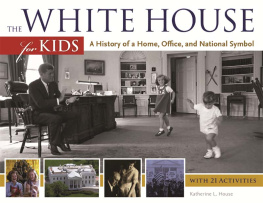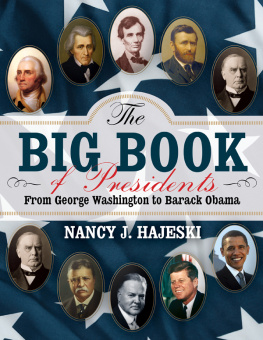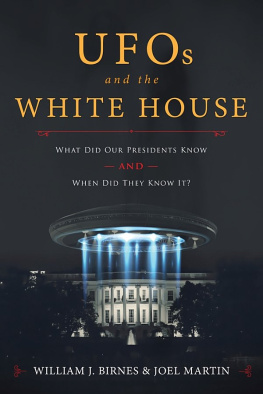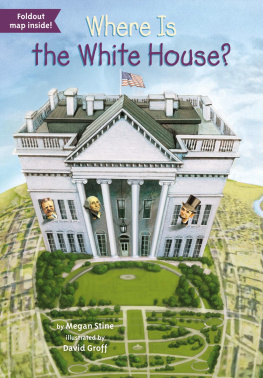
SECRET LIVES OF THE U.S. PRESIDENTS
WHAT YOUR TEACHERS NEVER TOLD YOU ABOUT THE MEN OF THE WHITE HOUSE
BY CORMAC OBRIEN
PORTRAITS BY MONIKA SUTESKI

Copyright 2009 by Cormac OBrien
Illustrations copyright 2004 by Quirk Productions, Inc.
All rights reserved. No part of this book may be reproduced in any form without written permission from the publisher.
Library of Congress Cataloging in Publication Number: 2003090708
eISBN: 978-1-59474-479-2
Designed by Susan Van Horn
Distributed in North America by Chronicle Books
680 Second Street
San Francisco, CA 94107
Quirk Books
215 Church Street
Philadelphia, PA 19106
www.irreference.com
www.quirkbooks.com
Dedication
For my parents, John and Mary Ann, who created a household in which seeking, questioning, and laughter were always welcome. Would that everyone had such inestimable role models.
CONTENTS
Introduction
When I was a boy, I was told that anyone could be president. Im beginning to believe it.CLARENCE DARROW
Chief Executive. Commander in Chief. Leader of the Free World. The Big Cheese. Whatever you want to call him, the president of the United States wields a fantastic amount of power. He keeps the military at his beck and call. He can veto Congresss best efforts at the drop of a hat. He receives birthday cards from foreign heads of state. His actions even affect the stock market, sometimes dramatically.
Love him or hate him, hes the closest thing we have to a monarch, a figure who encapsulates elements of celebrity and patriarchy all at once. Little wonder, then, that the men who have held the title of Mr. President have become household names. (Except William Henry Harrison and Chester Arthur. Oh, and Benjamin Harrison.) George Washington was the Father of Our Country, Abraham Lincoln led the nation through its greatest trial, Franklin Roosevelt took on the Great Depression and fascist aggression, and John Kennedy stared down the Soviets during the Cuban Missile Crisis. Yadda, yadda, yadda.
At least, thats what you read in the textbooks. And some of it is actually true. But what were these fellas really like? Heres what the Constitution has to say: No person except a natural born Citizen... shall be eligible to the Office of President; neither shall any person be eligible to that Office who shall not have attained to the Age of thirty five Years, and been fourteen Years a Resident within the United States.
These prerequisites dont narrow the field by much. Of course, we all know there are a few more unspecified requirementsanyone who wants to be president should probably have enormous piles of cash, close contacts in big business, white skin, and a penis. But compared with the situation in most other countries on Earth, eligibility for the highest office in this land is still pretty wide open. And if theres any doubt in your mind about that, consider all the ninnies who have managed to get there.
Take Zachary Taylor. He dressed like an old shoe, never voted before becoming president, spat tobacco juice all over the Executive Mansion, and died from an overdose of bad cherries. Then theres Warren Harding. Bad enough that his middle name was Gamaliel. But this was a man who liked to screw his mistresses in White House closets, lived in fear of his wife, and was a devout believer in his own outstanding incompetence. Rutherford Hayes held sing-alongs every night in the White House, William Taft was too big to fit in an ordinary bathtub, Lyndon Johnson drank Scotch out of a paper cup while driving, and Gerald Ford farted. A lot.
The giants of the presidential pantheon are just as colorful, from George Washington (who had a notoriously short temper) to Jack Kennedy (who had a notoriously long list of mistresses). Remember Ulysses S. Grant, whose generalship during the Civil War led to some of the most gruesome slaughters in American history? He hated the sight of blood. And how about Teddy Roosevelt, whose progressive politics brought him into conflict with some of the nations richest robber barons? He loved the sight of blood.
Not that we shouldnt continue to revere these gentlemen for their accomplishments or thank them for their devotion. After all, they have one of the hardest jobs in the world. But through more than two centuries of war, legislation, and diplomacy, this countrys highest leaders have displayed the consistent ability to remind us that theyre not only presidents but also human beingsflawed, neurotic, hapless, bizarre, frightened, and sometimes depraved.
And thank goodness. Because if they werent, this would have to be a book about Hollywood celebs or corporate tycoons. And who wants another one of those?
1 GEORGE WASHINGTON
February 22, 1732December 14, 1799
ASTROLOGICAL SIGN: Pisces
TERM OF PRESIDENCY: 17891797
PARTY: N/A (first term); Federalist (second term)
AGE UPON TAKING OFFICE: 57
VICE PRESIDENT: John Adams
RAN AGAINST: John Adams, John Jay (first term); John Adams, George Clinton (second term)
HEIGHT: 62
NICKNAMES: Father of Our Country, The Old Fox
SOUND BITE: My movements to the chair of government will be accompanied by feelings not unlike those of a culprit who is going to the place of his execution.
Talk about a warm welcomewhen General George Washington visited New York City at the end of the Revolutionary War, one local newspaper cheered, He comes! Tis mighty Washington! Words fail to tell all he has done!
These sentiments were shared by virtually every American. Having defeated the mightiest nation on earth (with a healthy dose of French help), the tall, stately Virginian had achieved the stature of a demigod in American eyes. Its no wonder he became the fledgling nations first chief executive; in fact, the office was created by the Founding Fathers with old George in mind.
George Washingtons salary was around a million dollars in todays moneyand he indulged in such luxuries as leopard-skin robes for all of his horses.
Washington was a minor Virginia aristocrat born of humble means whose career in surveying, land speculation, and militia service blossomed into immortality. Over the course of the American Revolution, he managed to avoid losing an army of underfed, underpaid, and often underwhelming rebels to the fierce predation of the British Empire and went on to assume the role of patriarch to an embryonic country. Above all, he resisted the impulse to become king over a people willing to make him oneno small feat, that.

As president, he established many of the customs we take for granted today. The inaugural address was his idea (although the actual speech was written primarily by James Madison). He also liked to be called Mr. President, which (when you consider that the Senate wanted to call him His Highness the President of the United States of America, and the Protector of Their Liberties) shows good judgment indeed. During his two terms, he put down a very serious insurrection (the Whiskey Rebellion) and, by acting as referee in their many heated disputes, prevented Thomas Jefferson and Alexander Hamilton from tearing each other to pieces.
Next page








